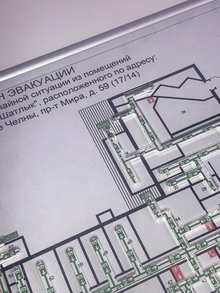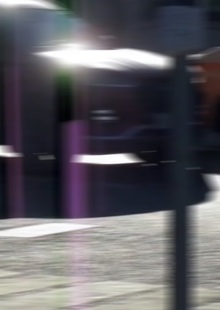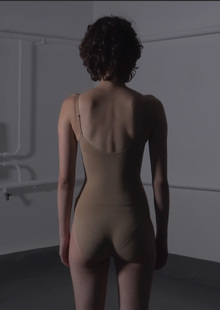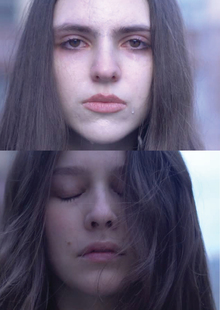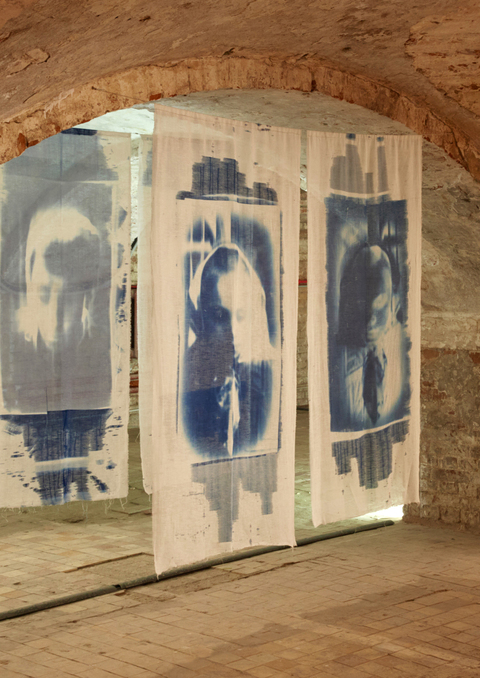
Crystal duality. Non-availability index
«Crystallical Duplicity» is a research project carried out by two artists, Daria Head and Alina Ryvalchenko. In their practice, they refer to the preservation of memory and the ruins of the past, where the dialogue between the two authors and the desire to demonstrate the subjectivity and instability of the collective perception of the past, which has always become a mirage, form the basis for creative interaction. The format of the dialogue is conceptually sound, as it shows different views on the past formed by individual reactions to what once happened.
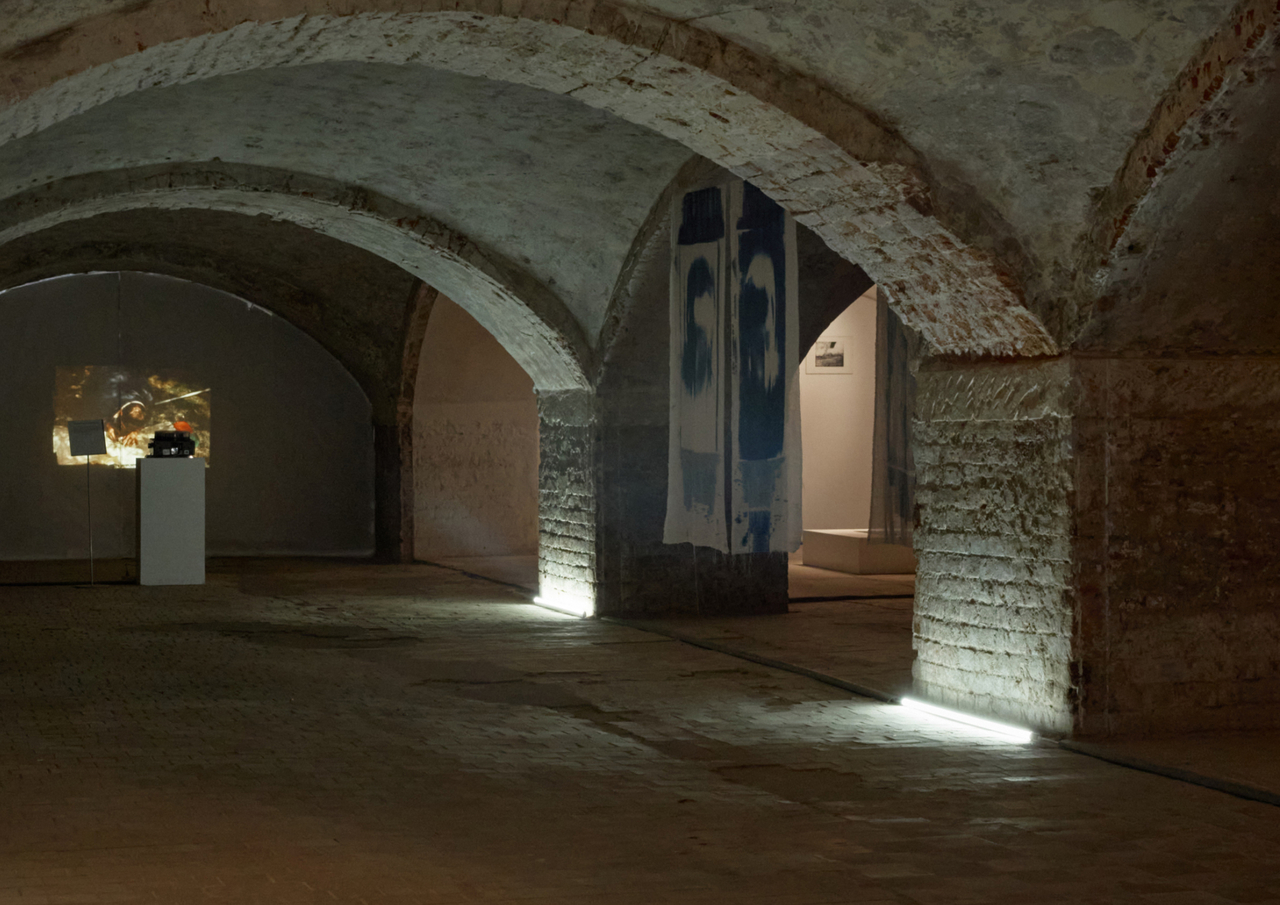
Crystal duality. Development of the exhibit
From 26 April to 24 May, an exhibition and research was held at the Excise Hall of the CSI, which is a two-part project on memory change and the destruction of memory spaces. The crystallistic duality is divided into two separate parts: the index of absence and love and hatred of ruins. Each part is a separate artistic narration that speaks of the duality of the perception of the images of the past, presenting personal history as a collective one.
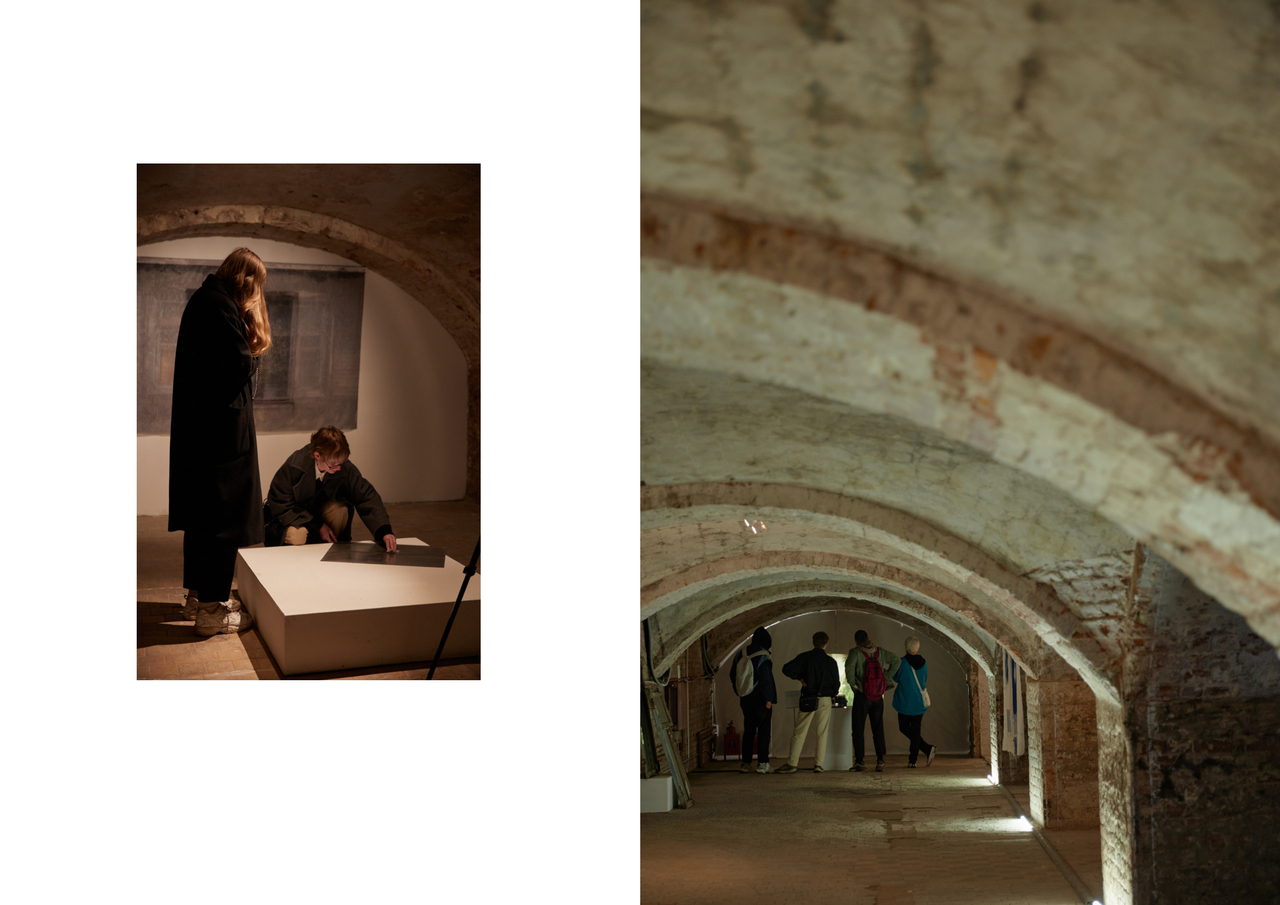
I did my artistic research as part of a residence in Open Studios on the Winsaurus. In my study, I emphasized the importance of interaction with space. A key component of the project was space-specificity, as well as lighting, to find the right balance, since most of the works involved projections and light. In designing the exhibition, we wanted to give the viewer the opportunity to loop between the columns and find objects.
Artwork. Non-availability index
Part of the «Index of Absence» exhibition is devoted to the topic of memory speculation and the variability of the past, exploring the intersection of different contexts (personal past, collective memory, local contexts). The purpose of the study is to create and combine a set of mediums and themes, to create a full-fledged statement reflecting the subjectivity and imputability of memory, the past and the traces of human influence on space and nature, where the procedurality of the study itself and the search for artifacts is an important factor, and to capture the experience of the processing of the information underlying the rationale behind the exhibition.
Many material evidence, such as photographs, has been lost due to numerous movements. In my research, I looked for suitable images that fit the time interval and location. That’s how you reconstructed my family’s lost memories, through photos of strangers. An important idea was also the moment when the viewers learned in these images where they used to be. Thus, the concept of an unreliable storyteller is emerging, giving us a history that does not exist.
Passing through
The photographic series consists of four fabric works carried out in cyanotype techniques. In this series, I’m looking at the phenomenon of randomity in a group photograph, where the attention of a person is directed at an invisible object behind the frame. Thus, there is no direct collision with this, and there is a dissonance that allows the boundary to be drawn between the present and the past. In addition, I was interested in working on the perception of positive and negative images. An inverted image refers to the ideas of duality and the perceived sense of perversity.
Reflecting Light
In a series of plates and graphics, I used photos of places where my family lived at different times. Aluminium plates originally used for the printing of photo-ophorses become independent objects that emphasize the transition and instability of the film image. By translating the image into lithography and subsequent open-truthing techniques, noise effects and random defects in amateur photographs are enhanced. The only way to see the image is through the movement of the lights.
A series of graphs. No name
A series of photo ops made in open harassment technology is becoming part of a psycho-geographic study of memory sites. Despite the fact that the photos were taken at the location of my family, it was important for me to focus on moving from personal history to collective history. The insignificance and typologies of these places make it possible to learn something personal in completely random and invisible places.
A play. Transparent image
The installation becomes the central idea of exposure, where there is a shift from «material» evidence, which is a photograph, to an unweighted phantom image, devoid of material, refracted and distorted. The diapositive slides themselves seem to be a transit state, from object to intangible projection, where the image is broken by light beams. The slides I’ve found with my personal history are blended with a set slide of landscapes, museums, pictures of cities and paintings. The main component of the work is the direct interaction of viewers with a diapositive projector that rhymes the slides. Each time the disc stops at a new position, asking the viewer to try to see in a series of changing patterns of interaction or lack thereof.
